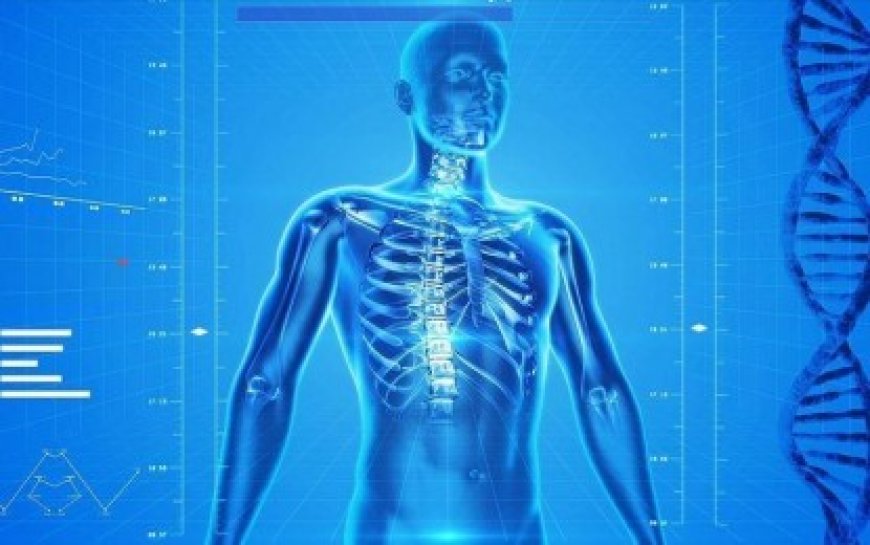Delphi-2M AI Predicts Risk of Over 1,000 Diseases Years in Advance
Delphi-2M, an advanced AI tool, predicts your risk of over 1,000 diseases up to 20 years ahead. Learn how it works and its benefits for proactive healthcare.

magine being able to predict the likelihood of developing over 1,000 diseases years before they even show symptoms. This is no longer science fiction. Thanks to a groundbreaking AI tool called Delphi-2M, developed by the European Molecular Biology Laboratory (EMBL), the German Cancer Research Centre, and the University of Copenhagen, this innovative technology is now a reality, revolutionizing personalized healthcare and disease prevention.
What Is Delphi-2M and How Does It Work?
Delphi-2M is an AI-driven model that predicts your future health risks, identifying diseases like cancer, heart disease, diabetes, and respiratory diseases up to 20 years in advance. By analyzing your medical history, lifestyle factors (such as diet, exercise, smoking habits), and demographic information (like age, gender, and genetic factors), Delphi-2M provides personalized predictions about your health trajectory.
Unlike previous models that only predicted one disease at a time, Delphi-2M can forecast multiple diseases simultaneously, making it a more comprehensive tool for doctors. This is similar to how we get weather forecasts—but instead of predicting the weather, it predicts health outcomes over long periods.
The Technology Behind Delphi-2M
What makes Delphi-2M stand out is its ability to process and analyze huge datasets. It was trained using data from:
-
400,000 anonymized individuals from the UK Biobank.
-
1.9 million patients from the Danish National Patient Registry.
This massive database allows Delphi-2M to identify patterns in health trends and to understand the various factors that contribute to disease development. The model is built using a transformer architecture—the same technology used in advanced language models like GPT. This enables the AI to make highly accurate predictions about a person’s risk of developing diseases, based on patterns seen in similar individuals.
Key Features of Delphi-2M’s Predictions:
-
Predicts the risk of more than 1,000 diseases over a person's lifetime.
-
Generates predictions years or even decades in advance.
-
Utilizes lifestyle factors, such as smoking and alcohol use, to estimate future risks.
-
Provides personalized forecasts to help healthcare providers implement preventive measures.
How Does Delphi-2M Benefit Patients?
The true value of Delphi-2M lies in its preventive power. Rather than waiting for a disease to develop and then treating it, Delphi-2M enables early intervention to prevent diseases before they manifest. Here’s how it benefits patients:
-
Early Detection: Individuals at high risk for diseases such as cancer or heart disease can receive early screenings, monitoring, and preventive treatments, potentially stopping disease progression before it starts.
-
Personalized Health Plans: Doctors can design personalized treatment plans for patients based on their predicted risks, leading to more tailored care and better health outcomes.
-
Improved Health Management: By knowing future health risks, individuals can make lifestyle adjustments—such as improving diet, increasing physical activity, or quitting smoking—that may help lower their risk of disease.
Challenges and Accuracy: What We Know So Far
Although Delphi-2M has shown great promise, it is important to note that it is not infallible. Like all predictive models, it is not perfect. Some factors, such as rare diseases or conditions with irregular patterns, may be harder for the model to predict accurately.
For example, while Delphi-2M is highly accurate in predicting common conditions like heart disease, diabetes, and certain cancers, it is still refining its predictions for mental health disorders or complex, multi-factorial diseases. However, for common diseases like heart attacks and stroke, Delphi-2M has shown high accuracy, with some studies indicating an accuracy rate of 85% over 5 years.
Ethical Concerns: Data Privacy and Access
As with any AI-driven health tool, there are ethical concerns surrounding data privacy and how the collected health data is used. There’s the risk that such personal health predictions could be misused by insurance companies, employers, or other entities who may use the data to discriminate against individuals.
Experts in the field urge for strict regulations to ensure that patients' health data is protected and that AI-driven predictions are used solely for healthcare purposes. Ensuring informed consent and confidentiality is paramount in ensuring that the benefits of this technology do not come at the cost of privacy violations.
The Global Impact: Revolutionizing Healthcare
Delphi-2M has the potential to revolutionize healthcare systems worldwide. It offers several advantages over traditional models:
-
Proactive Health: Rather than waiting for illness to occur, this AI tool helps healthcare providers act before the disease develops, offering preventive care tailored to each patient’s unique health profile.
-
Cost-Effective: By focusing on early prevention, Delphi-2M can significantly reduce long-term healthcare costs by reducing the need for expensive treatments and hospitalizations in the future.
-
Global Accessibility: This AI model, although initially tested in European and UK data, can be adapted and expanded globally. The hope is that it will eventually be available in low- and middle-income countries, offering affordable and personalized healthcare for those who need it most.
Future of AI in Healthcare: What's Next?
Looking ahead, Delphi-2M represents just the beginning of what AI can do for healthcare. As more data is collected, AI models like this will only become more accurate and comprehensive. Future advancements could see AI tools predicting mental health conditions, genetic disorders, and even pregnancy complications.
Moreover, Delphi-2M’s development could spark other AI innovations in healthcare, creating tools for personalized medicine that consider genetic, environmental, and lifestyle factors, ultimately leading to more accurate and individualized treatments.
Conclusion
The introduction of Delphi-2M is a monumental step forward in the world of predictive healthcare. With its ability to forecast over 1,000 diseases, this tool has the potential to revolutionize how we approach healthcare, shifting from reactive treatment to proactive prevention. As AI technology continues to evolve, models like Delphi-2M are likely to become integral components of personalized medicine, offering hope for healthier, longer lives.

 Israr Ahmed
Israr Ahmed